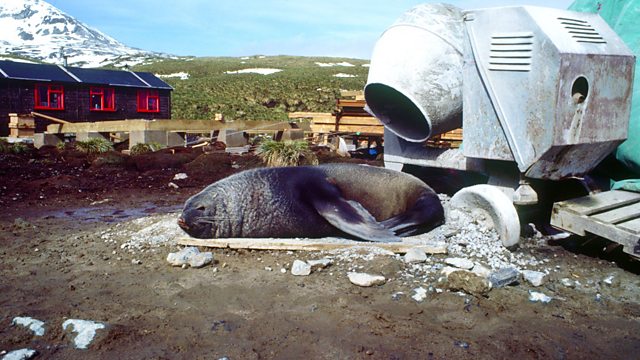Mangroves - Putting Nature Back?
Can we share the planet with mangrove forest, and is a restored mangrove forest the same as the original? Presented by Monty Don.
Monty Don will be posing to experts who specialise in large scale restoration projects, like the Can Gio mangrove in Vietnam which was destroyed by Agent Orange during the Vietnam War, whether a restored mangrove forest can ever be the same as the original.. Some argue that we could never hope to reproduce what we destroyed, but as long as what we create functions and is biodiverse, then that is all that matters. Others say that in our fast changing world there is no permanence and our best strategy is to build in resilience for the future. Difficult, fascinating problems that raise many questions about our understanding of nature and wilderness.
Last on
More episodes
Dr Karen Diele

At the in Vietnam, Karen and colleagues studied the effects of typhoon and lightning disturbance on planted monospecific mangrove forests and their associated macrobenthic fauna.
In Brazil she has led several projects focussing on the biology and functional role of a mangrove crab harvested by fishermen and learned how community-based marine protected area management is taking place.
Dr James Aronson

While working on the conceptual advancement and mainstreaming of science-based ecological restoration, he also participates in or advises on ecosystem and landscape restoration programs in tropical, Mediterranean-climate and dry-land regions of the world.
He is a representative-at-large of the  (SER), and editor-in-chief of the SER-Island Press book series, .Ìý
Professor Richard Hobbs

He grew up in Scotland and completed a BSc in Ecological Science at the followed by an MA in Biology at the , on a Fulbright Scholarship.
He completed my PhD at the , working on post-fire dynamics of heathland communities, supervised by Professor Charles Gimingham. After completing his PhD, he was a postdoctoral fellow at , working with Professor Hal Mooney on serpentine grassland dynamics.
He joined the Wildlife & Ecology division of Australia's national science agency, CSIRO, in in 1984 and worked on the dynamics of fragmented ecosystems in the Western Australian wheatbelt.
He became Officer in Charge of the Western Australian laboratory in 1997 and in 2000 took up a Chair in Environmental Science at Murdoch University and was awarded an ARC Australian Professorial Fellowship in 2006. He joined the in 2009.
Broadcasts
- Tue 18 Nov 2014 11:00±«Óãtv Radio 4
- Mon 24 Nov 2014 21:00±«Óãtv Radio 4
Learn about habitats with The Open University
Explore the twists and connections of natural life in four different UK habitats.

